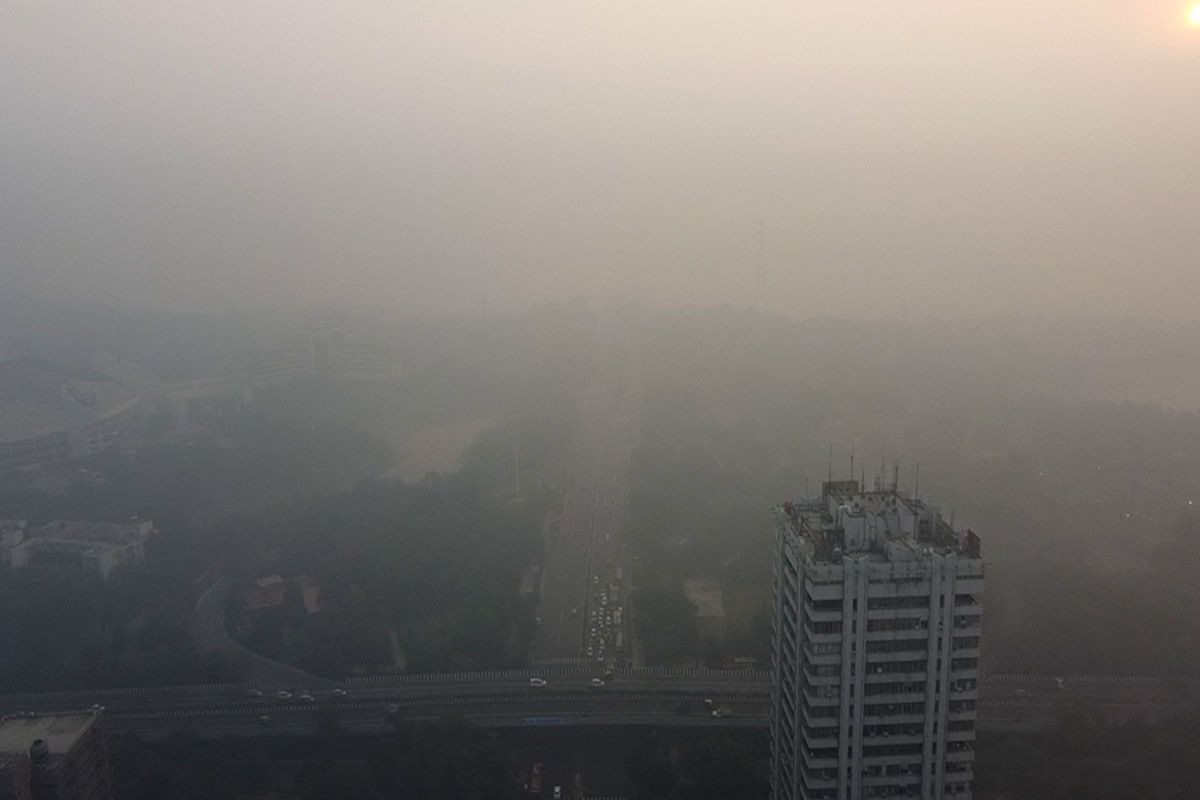Delhi’s worsening air quality prompts CAQM to invoke GRAP-III measures
At 4 pm on Thursday, Delhi's average AQI was 424, and to prevent further deterioration, the sub- committee decided to invoke GRAP - III.
According to the Central Pollution Control Board (CPCB), the average AQI in Delhi was recorded at 334, with PM 2.5 being the prominent pollutant in the air.

New Delhi, Dec 12 (ANI): An aerial view of the ITO area covered in smog as the air quality in the national capital continues to remain in the 'Very Poor' category as per the Central Pollution Control Board (CPCB), in New Delhi on Tuesday. (ANI Photo)
Residents of the national capital continued to suffer under toxic air conditions for over a week, as the city’s average Air Quality Index (AQI) remained in the ‘very poor’ category on Sunday, despite a slight improvement.
According to the Central Pollution Control Board (CPCB), the average AQI in Delhi was recorded at 334, with PM 2.5 being the prominent pollutant in the air.
The AQI showed minor improvement as none of the hotspots recorded air quality in the ‘severe’ zone on Sunday, with index values remaining below the 400 mark.
Advertisement
At 6 pm on Sunday, the top five areas with the worst AQI levels were Bawana (392), Jahangirpuri (382), Wazirpur (370), Rohini (369), and RK Puram (364).
The city’s average AQI value was calculated from data collected at 36 air monitoring stations across Delhi, including those in critical areas.
Despite this, residents reported discomfort from breathing issues, dry cough, and itchy eyes, especially in areas with high vehicular traffic.
People with respiratory ailments are avoiding outdoor activities and were seen wearing masks to prevent further health deterioration.
According to the Indian Institute of Tropical Meteorology (IITM), the city’s ventilation index is projected to be 7000 m²/s on Monday.
The weather agency noted that a ventilation index below 6000 m²/s, combined with an average wind speed of less than 10 km/h, is unfavorable for pollutant dispersion.
In the coming days, meteorological conditions are expected to remain unfavorable for effective pollutant dispersion, as indicated in the IITM’s air quality and weather bulletin for Sunday.
Experts have advised people with respiratory issues to stay indoors for safety.
The CPCB bulletin warned that AQI in the ‘very poor’ category may cause respiratory illness on prolonged exposure.
Meanwhile, the Commission for Air Quality Management (CAQM) in NCR held a meeting on Saturday to review the situation.
The commission expressed concern over the slow pace of resolution and the growing backlog of pending complaints being handled by relevant agencies.
The commission strongly emphasized that each violation must be addressed urgently to ensure swift resolution.
Advertisement